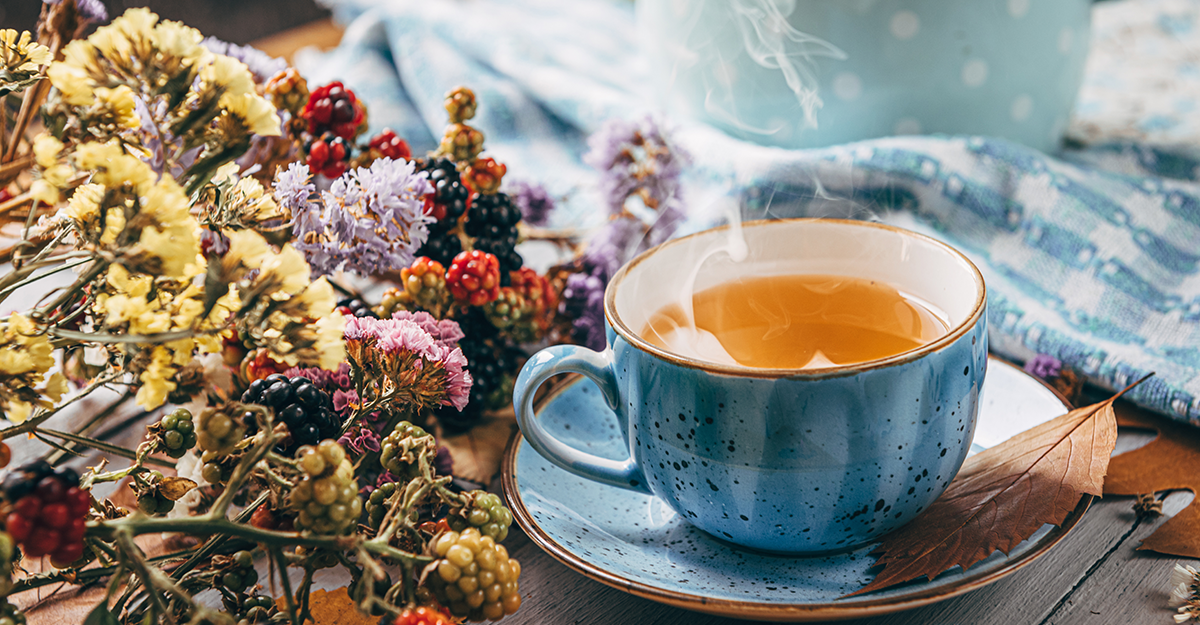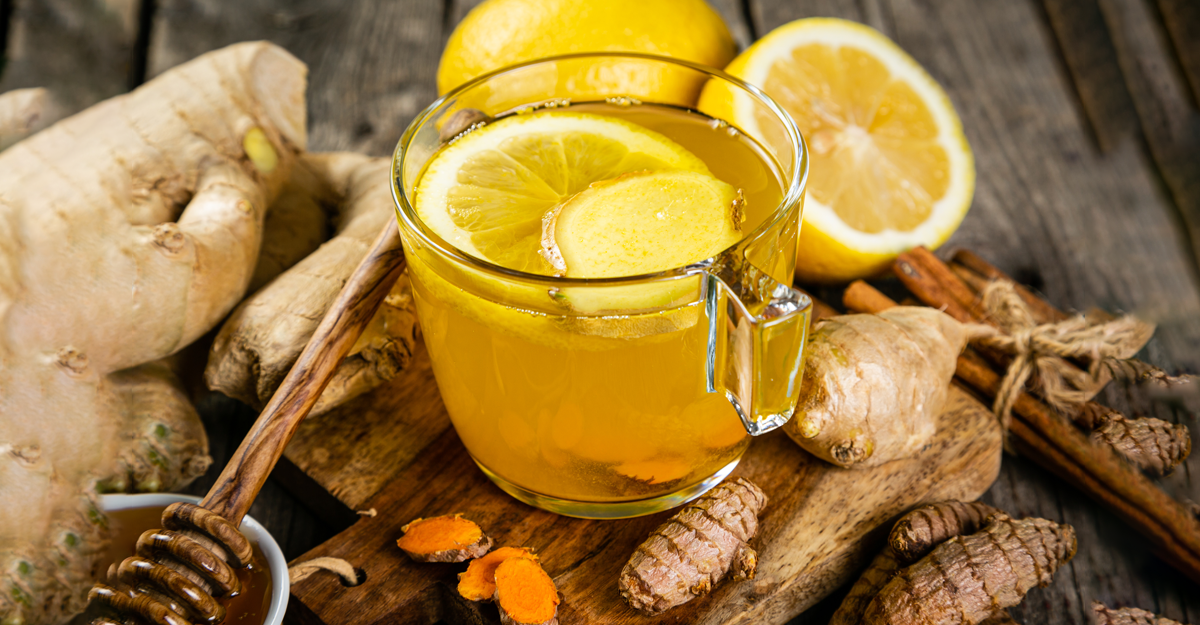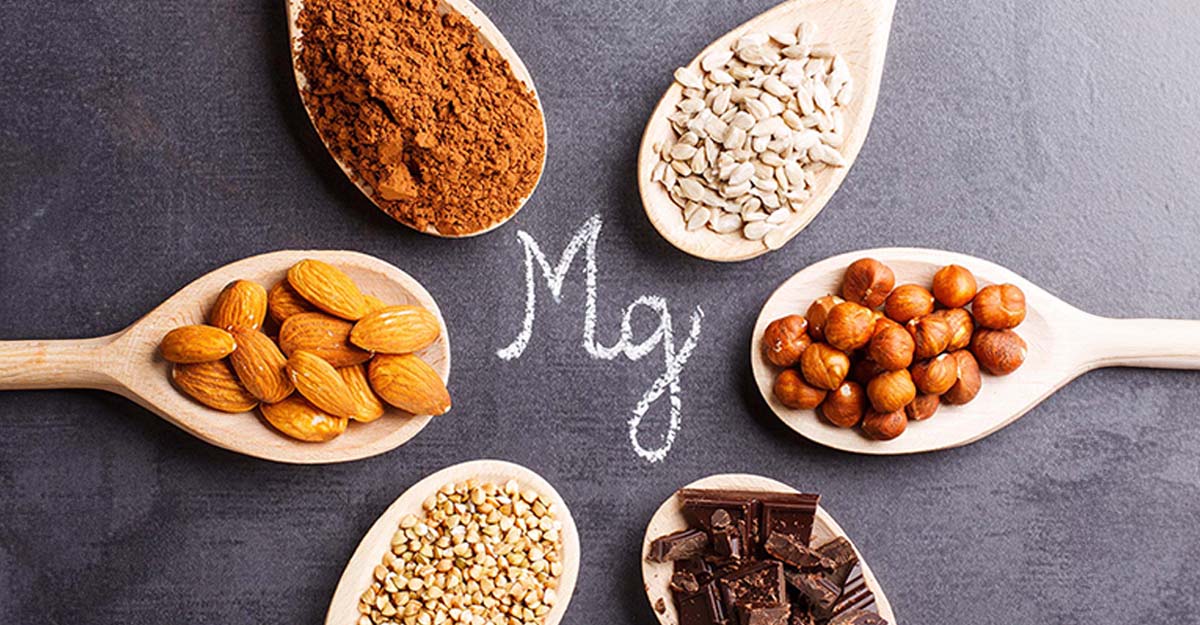
With so many boxes of tea inundating the aisles of your grocery store and online market, it can be overwhelming to find the right one for your needs. Keep reading to learn about the benefits of popular brews like herbal teas, green tea, as well as specialized teas for sleep and digestion, to name a few. No matter what your health goals are, let’s explore the array of health benefits found in different teas so you can find the one that will help you feel your best.
Common tea types
What we know as tea itself is a plant by the name of Camellia sinensis. The leaves of this plant are, when steeped, what you know as white, black, and green teas. The color and flavor of the tea depends on how those leaves are treated in processing. Black tea is the most oxidized, and in turn, it contains a potent source of catechin antioxidants as well as its rich black color and unique taste. (Source 1)
Green tea is made by halting the oxidation process of whole tea leaves with steaming or pan-firing. (Source 2) Because of this, many more of the catechin antioxidants are preserved, which provides green tea with more potent anti-inflammatory properties than black tea. (Source 3) A popular form of green tea is known as matcha, which is essentially ground green tea leaves. You can use products like MRM Matcha Green Tea Powder in smoothies, yogurt, cereal, beverages, or baking to provide a versatile form of green tea to help support focus, energy, and metabolic health.
Finally, white tea comes from the young leaves from the tea plant that are covered with downy and white hairs, hence its name. (Source 4) These first buds and leaves are then dried before steeping to create a soft, aromatic flavor with floral and fruit notes. Because of this minimal processing, white tea contains more antioxidant compounds than green or black teas. It also contains the least amount of caffeine from these most common types of tea. (Source 4)
Herbal teas
Herbal teas are not technically “tea” since they do not come from the Camellia sinensis plant. Instead, herbal teas come from a variety of herbs that give each type of herbal tea very unique flavors and health benefits. Research shows that some herbal teas can help improve lipid profiles and metabolic health if consumed regularly, as well as help the body clean out unnecessary compounds that could lead to chronic disease over time. (Sources 5,6) Let’s explore some popular herbal tea varieties, including ginger tea, chamomile tea, and mullein tea.
Ginger tea
Ginger tea is a spicy tea known for its digestive-supporting properties, which include helping to manage nausea. (Source 7) Its main ingredient is known as gingerol, which is a type of antioxidant that can help soothe inflammation in the gut. (Source 8) If consuming ginger tea is too spicy for you on its own, you can try ginger tea blends like Organic India Tulsi Lemon Ginger Organic Tea. This organic, naturally caffeine-free tea contains fresh lemon along with ginger to provide a refreshing flavor to help boost your mood and rejuvenate your gut.
Chamomile tea
Known for its sleep-promoting properties, chamomile tea is often found in nighttime and relaxation tea blends. Research shows that chamomile tea may help relieve pain, promote improvements in wound healing, and aid recovery from tissue injury. (Source 9) You can also find herbal tea blends that contain chamomile – like Organic India Tulsi Sleep Tea. This USDA-certified organic, kosher, halal, and non-GMO certified tea blend contains chamomile along with cardamom and ashwagandha, along with several other herbs to help reduce stress, relax the body, and help promote sleep.
Mullein tea
With a history of use in Spanish folk medicine, mullein tea is commonly used to support respiratory health and soothe inflammation in the body. (Source 10) In fact, a 2021 study looked at an intervention where participants with a respiratory illness were given a blend of hyssop and mullein tea three times daily for eight days. Results show that those who consumed the mullein tea blend had less reports of symptoms like sore throat, body pain, cough, and hoarseness than the control group. (Source 11)
One type of mullein tea you should try is Dr. Morse’s 3 Herb Tea. This blend of mullein leaf, fenugreek seed, and pleurisy root is specially formulated to help support lung tissue health and to help maintain healthy moisture levels in the respiratory system. Just one teaspoon of mixture is to be added to every two cups of distilled water. Boil your measured water for seven minutes, strain the water and tea mixture, then shake well before consuming.
Final takeaway on tea
Teas come in many flavors and colors that each hold their own unique profile of health benefits. These health properties make teas, both common and herbal, qualifying for the title of functional foods. No matter which tea you choose, or if you choose to drink it hot or iced, be sure to follow the instructions of the tea purveyor on how to steep so you can enjoy the tea in its optimal condition.
References
- https://onlinelibrary.wiley.com/doi/full/10.1002/fsn3.70585
- https://pmc.ncbi.nlm.nih.gov/articles/PMC11899301/
- https://pmc.ncbi.nlm.nih.gov/articles/PMC7084675/
- https://pmc.ncbi.nlm.nih.gov/articles/PMC10563719/
- https://pubmed.ncbi.nlm.nih.gov/38894639/
- https://pmc.ncbi.nlm.nih.gov/articles/PMC8308238/#sec2-nutrients-13-02162
- https://www.health.harvard.edu/nutrition/the-health-benefits-of-3-herbal-teas
- https://www.sciencedirect.com/science/article/pii/S2667268525000233
- https://pmc.ncbi.nlm.nih.gov/articles/PMC12269088/
- https://pmc.ncbi.nlm.nih.gov/articles/PMC8301161/
- https://www.researchgate.net/publication/375369270_The_effects_of_hyssop_and_mullein_tea_on_the_clinical_symptoms_of_COVID-19_patients
* These statements have not been evaluated by the Food and Drug Administration. The products mentioned are not intended to diagnose, treat, cure, or prevent any disease.




